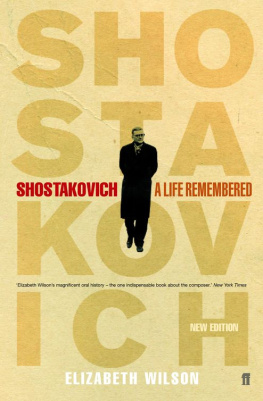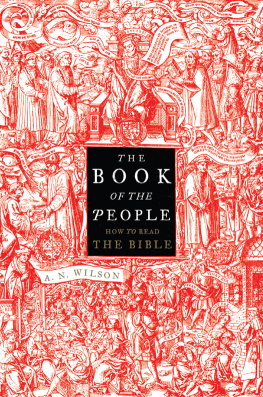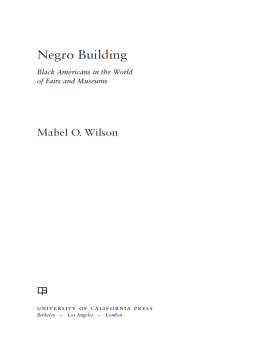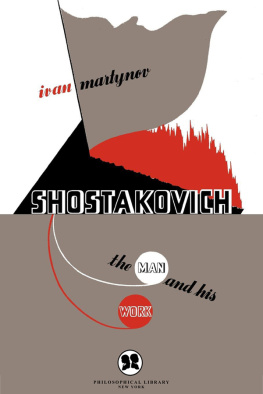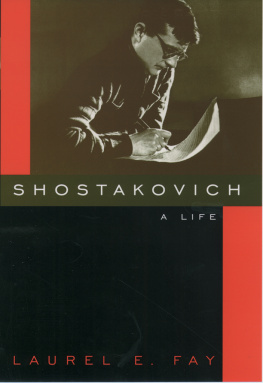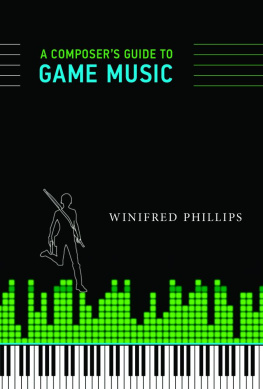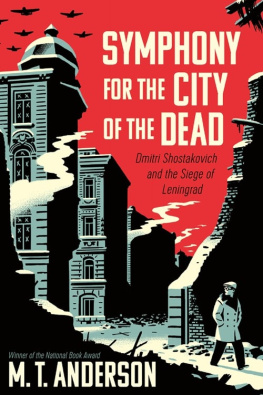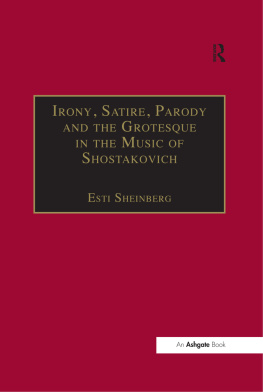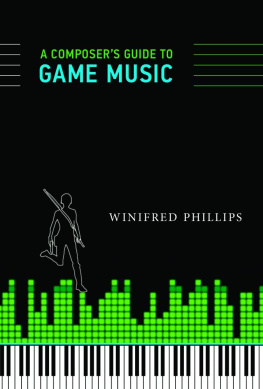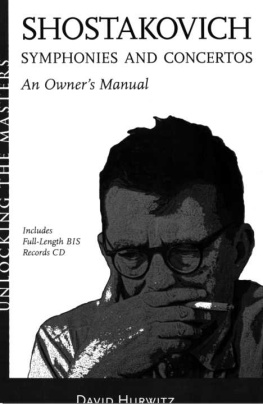Wilson - Shostakovich: a Life Remembered
Here you can read online Wilson - Shostakovich: a Life Remembered full text of the book (entire story) in english for free. Download pdf and epub, get meaning, cover and reviews about this ebook. City: London, year: 2011, publisher: Faber & Faber, genre: Detective and thriller. Description of the work, (preface) as well as reviews are available. Best literature library LitArk.com created for fans of good reading and offers a wide selection of genres:
Romance novel
Science fiction
Adventure
Detective
Science
History
Home and family
Prose
Art
Politics
Computer
Non-fiction
Religion
Business
Children
Humor
Choose a favorite category and find really read worthwhile books. Enjoy immersion in the world of imagination, feel the emotions of the characters or learn something new for yourself, make an fascinating discovery.
- Book:Shostakovich: a Life Remembered
- Author:
- Publisher:Faber & Faber
- Genre:
- Year:2011
- City:London
- Rating:5 / 5
- Favourites:Add to favourites
- Your mark:
- 100
- 1
- 2
- 3
- 4
- 5
Shostakovich: a Life Remembered: summary, description and annotation
We offer to read an annotation, description, summary or preface (depends on what the author of the book "Shostakovich: a Life Remembered" wrote himself). If you haven't found the necessary information about the book — write in the comments, we will try to find it.
Shostakovich: a Life Remembered — read online for free the complete book (whole text) full work
Below is the text of the book, divided by pages. System saving the place of the last page read, allows you to conveniently read the book "Shostakovich: a Life Remembered" online for free, without having to search again every time where you left off. Put a bookmark, and you can go to the page where you finished reading at any time.
Font size:
Interval:
Bookmark:
To the memory of my mother and my father
Dmitri Dmitriyevich Shostakovich was born a hundred years ago on 25 September 1906. The centenary of his birth provides an opportunity not just for celebration, but for re-evaluation of the man and his music. Twelve years have passed since my book Shostakovich: A Life Remembered was first published by Faber and Faber and Princeton University Press. It is opportune to mark this event with a revised edition in which new information has been absorbed, while maintaining the essential vision of the original book.
The incorporated revisions have been motivated not so much by the need for reappraisal of Shostakovichs personality, for I believe that the original edition of Shostakovich: A Life Remembered still offers a highly credible picture. Rather they aim at sharpening the focus on his image, and elaborating the details of his life, while gaining a wider perspective.
For the new edition I have retained the integral structure of the original book, where reminiscences of contemporaries are woven into the fabric of the text with the composers writings and documents from published sources, as well as my own commentaries. Into this I have threaded new material garnered from more recent publications: reminiscences , the composers own letters and working diaries, and other documents relating to his life.
I have also considerably revised and extended my own commentaries , focusing more attention on the music, in so far as the compositional work mirrors Shostakovichs inner world, as well as referring to external events in his life. In rewriting and reordering my material I have attempted to maintain the essential balance between reminiscence and documentary evidence, comment and background history. In compensation I have also cut repetitive and inessential detail in the text.
The twelve years that separate the two editions of Shostakovich: A Life Remembered have seen a veritable flood of books and articles dedicated to the composer. I have sifted through a great deal of them in my search for new material and information. Whereas I decided not to seek further testimony myself from Shostakovichs remaining contemporaries (for I had already covered the ground quite well in the late 1980s), I have raided published sources to extract new reminiscence material. My references are acknowledged in footnotes and in the list of sources at the end of the book.
Of particular value to the biographer are the volumes of source materials published in Russia, where the selection of letters and documents usually represent the holding of one particular archive. To cite an example, the 560-page volume, Dmitri Shostakovich through his Letters and Documents by I. A. Bobykina, published by the Glinka State Museum of Musical Culture in Moscow, is a treasure trove of information , which has been thoroughly edited, yet leaves the material uncontaminated by superfluous commentary or interpretation. Such books, I should add, constitute a much loved and idosyncratic genre which has become part of established Russian biographical tradition.
No less important are the the new publications of the composers letters. (For instance the above-cited book contains an important collection of Shostakovichs youthful letters to Boleslav Yavorsky.) The composers vivid epistolary style is reminiscent of his music, for his language bristles with understated sardonic humour, rhythmic repetitions and a parodying use of Soviet officialese. His knowledge of Russian literature shines through, reminding the reader of Gogol at one moment, and of Zoshchenko or Daniil Kharms at another.
Not surprisingly Shostakovich reveals more of himself in his early letters, written with directness, sincerity and youthful passion. Later he exercised far greater restraint, as he increasingly felt the need to guard his privacy. In addition the need for self-censorship imposed on him a coded linguistic style, where risky subjects could be alluded to only cryptically. Nevertheless the epistolary inheritance provides wonderful documentation, throwing insight into the composers moods and chronicling the dates of his composition.
Today no Shostakovich scholar can ignore two invaluable works; namely the impeccably researched biography by the American scholar Laurel Fay, Shostakovich: A Life (Oxford University Press, 2000), and the Polish composer Krzystzof Meyers book, Shostakovich: Life, Workand Times, in the revised Russian edition (DSCH/Kompozitor, St Petersburg, 1998). I also found much that stimulated thought in Levon Hakobians most interesting book, Dmitri Shostakovich: An Essay in the Phenomenology of his Work.
My own insights into the endlessly fascinating world of Shostakovichs music have also benefited from acquaintance with several new publications: suffice it to mention the volumes of essays published under the editorship of Lyudmila Kovnatskaya, Laurel Fay, David Fanning and Rosamund Bartlett. (These are included in the list of sources.)
Thanks to the efforts of the composers widow, Irina Antonovna Shostakovich, the DSCH publishing house has been set up in Moscow, with the aim of publishing the composers music and books relating to his biography and work. A complete new edition of the composers work in 150 volumes under the general editorship of Manashir Yakubov is currently in progress: 49 volumes have been produced so far. Yakubovs extensive articles on the works and their sources are a valuable part of every new volume, offering important new information about the content and background to the compositions concerned.
On the reverse side of the coin, the so-called Shostakovich Wars have given rise to debate, ranging from tendentious quarrels to mudslinging , all copiously described in acres of print and cyberspace. Ultimately this has held up rather than promoted the advance of Shostakovich scholarship. The arguments originated in Solomon Volkovs claims that Testimony (published in 1979) represents the composers own memoirs as recounted to him. Laurel Fay, in her recent article Volkovs Testimony Reconsidered (in A Shostakovich Casebook, edited by Malcolm Hamrick Brown), has conclusively demonstrated that Volkovs methods and claims do not stand up to examination.
It cannot be denied that Volkovs Testimony makes compulsive reading , and that when it appeared it stimulated new interest in the West in Shostakovichs music. It also dealt a fatal blow to the primitive view that the composer expressed himself as an official Communist in his music although I admit to being amazed that even at the height of the Cold War anybody with any knowledge of the music could regard such a view as credible.
However, Testimony has also been indirectly responsible for equally tendentious but opposite interpretations of the oeuvre. At worst Shostakovichs music has been reduced to little more than a vessel for hidden political agenda and autobiographical secrets. While the composers frequent use of quotation and allusion is undeniable, a dangerous problem occurs when the right to the understanding of his work, and not least the decoding of its signals, is claimed exclusively by one or other party. This results in emphasis being placed on secondary issues, and overlooks the intrinsic value of the music for its own sake.
One might argue that a composer who continues to provoke controversy remains constantly in the public eye, and this is a healthy sign. Over the years Shostakovichs music has provoked all kinds of criticism, and not just by Stalin and Communist Party ideologues. It was dismissed as hopelessly provincial by Stravinsky, and more recently as a kind of sub-Mahlerian third pressing by Boulez (using an analogy with the dregs of olive oil). In Russia the generation of composers that succeeded Shostakovich often fought against the shadows his music cast on them.
Font size:
Interval:
Bookmark:
Similar books «Shostakovich: a Life Remembered»
Look at similar books to Shostakovich: a Life Remembered. We have selected literature similar in name and meaning in the hope of providing readers with more options to find new, interesting, not yet read works.
Discussion, reviews of the book Shostakovich: a Life Remembered and just readers' own opinions. Leave your comments, write what you think about the work, its meaning or the main characters. Specify what exactly you liked and what you didn't like, and why you think so.

